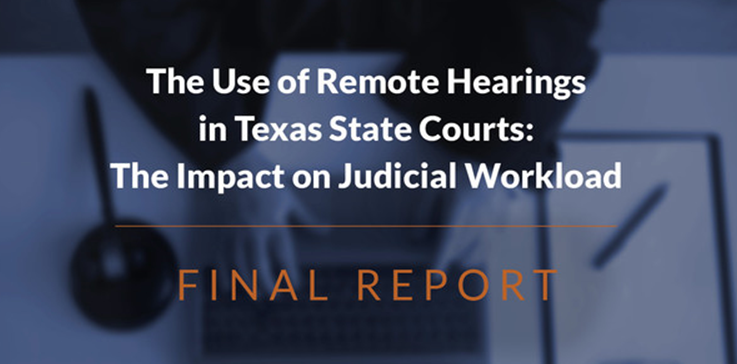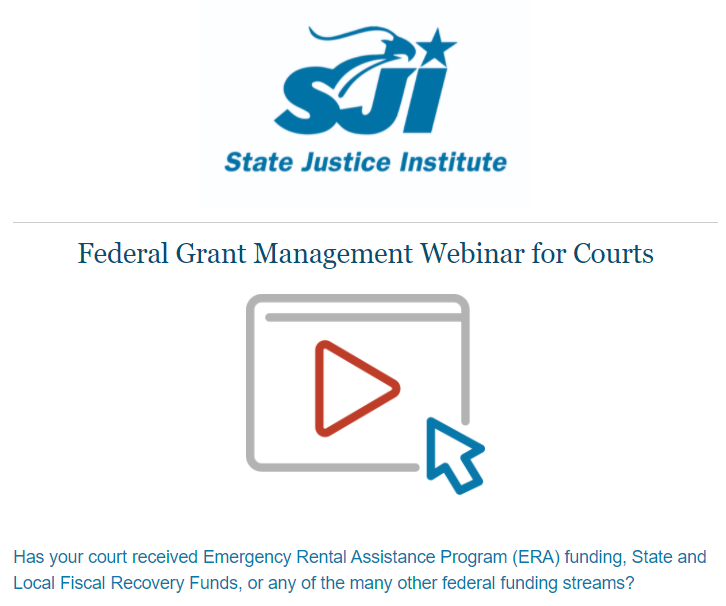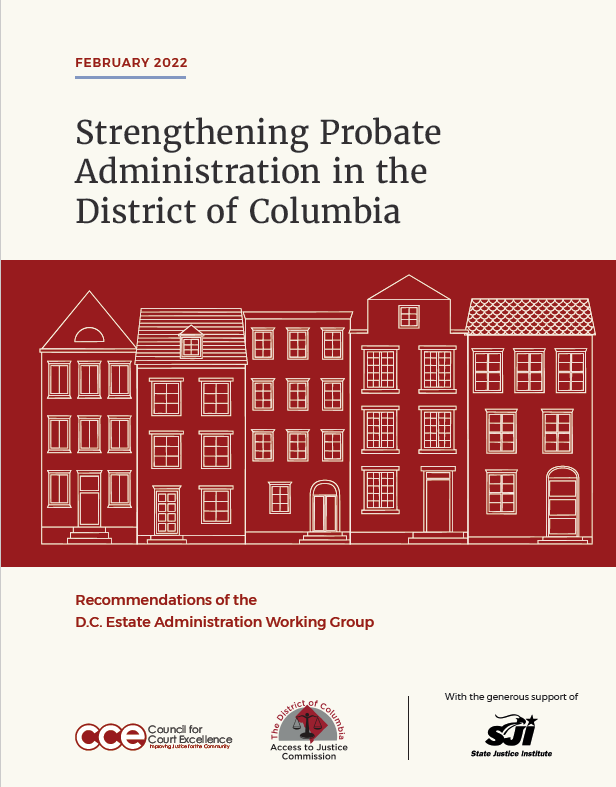This newly released report is the first national review of data that confirms what judges have anecdotally shared about remote hearings before and during the pandemic. The 12-month study analyzed both 1.25 million minutes of judicial data and focus group feedback from judges and court leaders in eight counties across Texas. The NCSC study, supported with generous funding from the State Justice Institute, found that remote proceedings take about a third longer than in-person hearings largely due to technology-related issues and lack of preparation by participants. But the study also found that remote proceedings take longer because they increase access to justice, as litigants can more easily attend and participate in hearings. To access the full report, click here.
Learn more about the findings and recommendations of this State Justice Institute funded study here.




